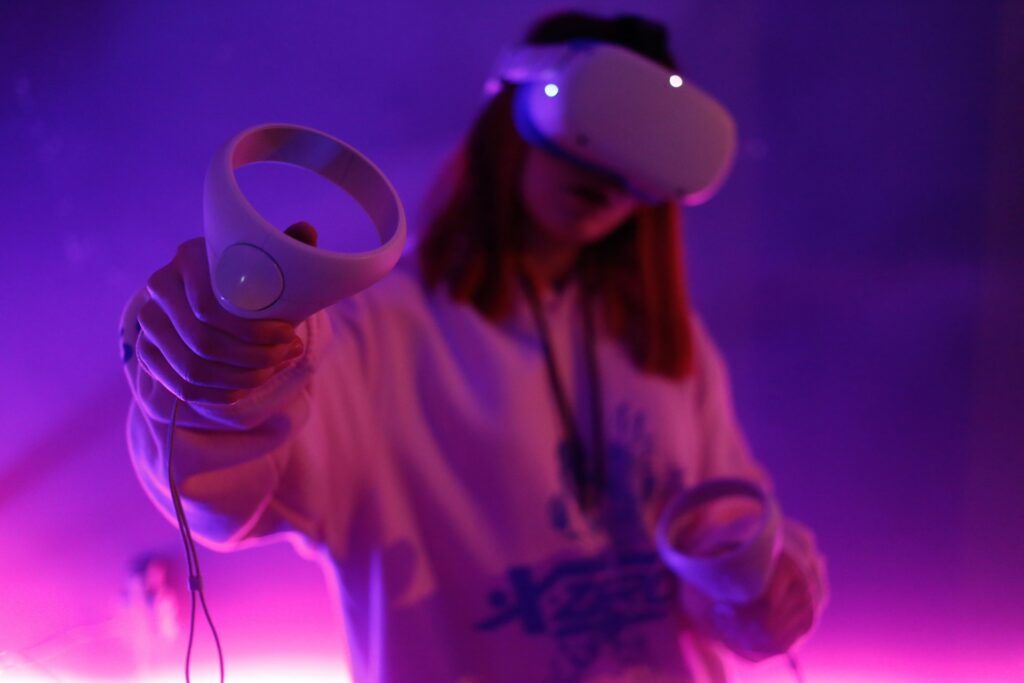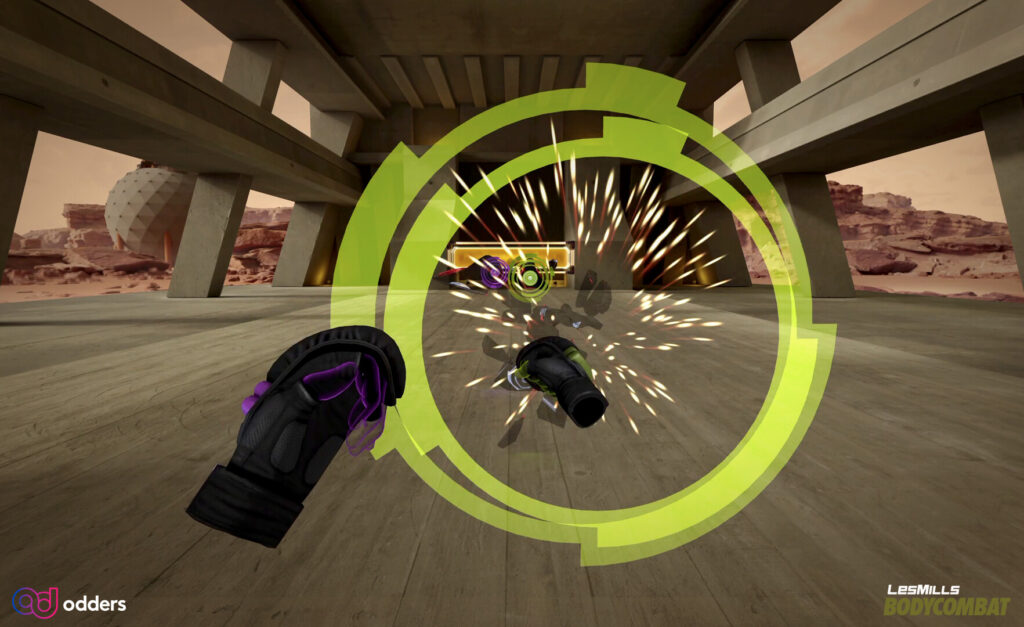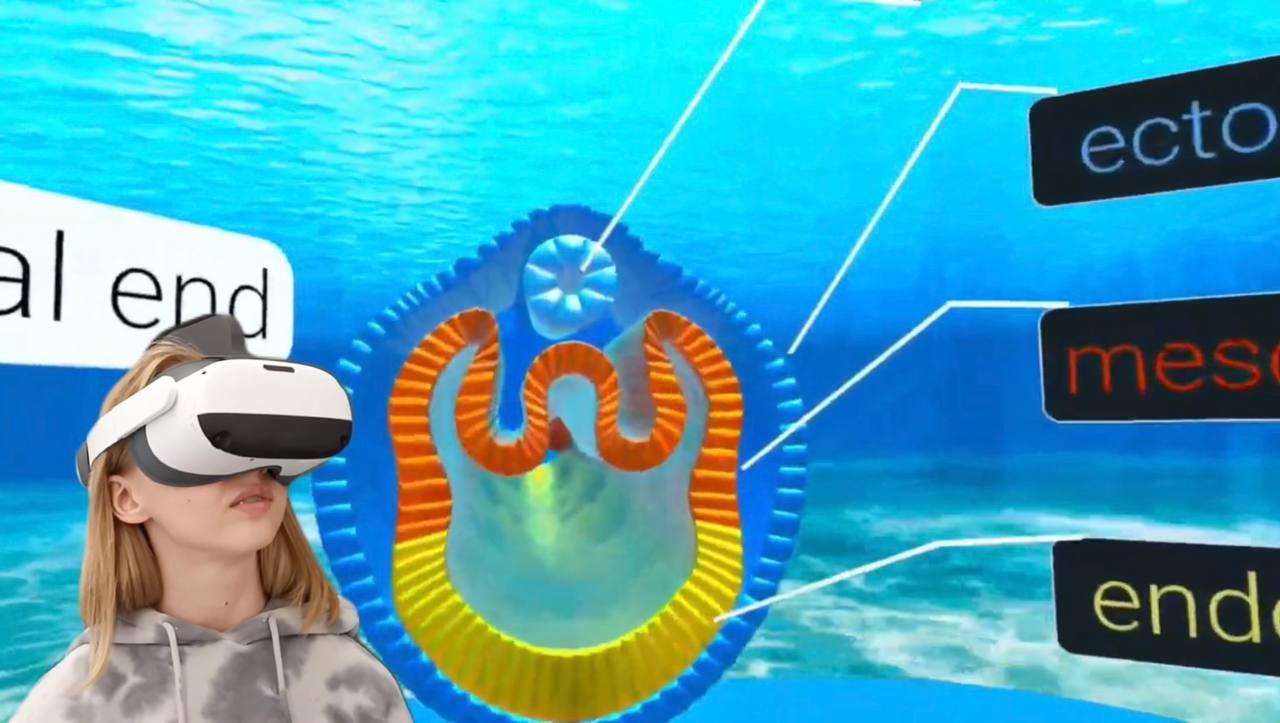For years, people have questioned whether sports and VR could ever co-exist. After all, sports traditionally bring to mind stadiums, playing fields, and group workouts, while VR often conjures images of headsets and digital-game worlds. Yet innovations like Les Mills BODYCOMBAT VR show that virtual-fitness solutions can complement—or even elevate—the dynamic world of sports. Here’s a closer look at how immersive technology is transforming fitness, along with surprising ways it’s also reshaping other areas like STEM labs, empathy training, and school safety.
What Is Les Mills BODYCOMBAT VR?
Les Mills BODYCOMBAT VR is a cutting-edge fitness experience that adapts the globally acclaimed martial-arts-inspired BODYCOMBAT™ workout into an interactive virtual environment. Users enter high-energy routines without stepping outside their homes, guided by expert instructors Dan Cohen and Rachael Newsham. This immersive approach allows them to refine striking skills, track performance, and enjoy a wide range of exercise intensities — all within digitally crafted arenas.
- Diverse Workout Plans: Over 50 workout programs, targeting every skill level from beginner to advanced.
- Professional Coaching: Dan and Rachael provide real-time feedback, ensuring correct form and continuous motivation.
- Immersive Environments: Nine unique settings (with more on the way), each designed to keep users engaged and inspired.
- Innovative Mechanics: New punch moves and knee strikes, relying on motion sensors that detect accurate form in a virtual-reality class.
This application is accessible on Meta Quest 2, Meta Quest 3, and PlayStation VR2, promising a seamless, user-friendly experience regardless of platform. For many fitness enthusiasts, the question then becomes: can this approach truly replace or enhance a traditional workout? The answer often lies in how effectively it merges genuine exercise with the excitement of a digital classroom.
Why Virtual-Reality Training Works for Fitness

Sports and technology in education have long co-existed to enrich student experiences—think of motion-capture software in athletic training or data analytics in professional competitions. Virtual-reality solutions take it a step further, offering:
- Real-Time Feedback
Immediate on-screen prompts act like a personal trainer, allowing users to tweak techniques, minimize injury risks, and maximize their workout. - Flexible Access
Whether it’s a hardcore mixed-martial-arts session or a relaxed warm-up, routines can be tailored to personal goals, bringing a smart-classroom approach to fitness. - High Engagement
Immersive platforms function similarly to VR education services: they keep participants focused with interactive challenges, simulated opponents, and dynamic music. - Safe, Controlled Spaces
Much like a school VR chemistry lab that removes toxic substances from experiments, virtual-fitness environments reduce hazards like slippery gym floors or cumbersome equipment.
Beyond Fitness: Broader Applications of Immersive-Tech

BODYCOMBAT VR
Just as BODYCOMBAT VR opens doors for sports training, virtual reality in education addresses various real-world challenges. Multiple initiatives show how this technology can enhance empathy, inclusivity, and safety:
- Empathy Development
This blog post explains how an immersive setup helps students understand emotional responses, fostering compassion and reducing conflict. - STEM Engagement
A robust catalog of interactive simulations showcases new ways to explore VR biology, VR physics, or VR chemistry, transforming a traditional high-school STEM lab into a vibrant digital-classroom environment. Those interested can request a free demo to see the difference firsthand. - Promoting Inclusivity
Closing the gender gap in subjects like engineering or robotics gains momentum with virtual reality projects designed to engage more girls in STEM. - School Safety & Anti-Bullying
Virtual-reality safety programs and interactive modules create realistic scenarios, training students to handle difficult situations more effectively.
From Sports to STEM Labs: Why It All Matters
Physical health, academic exploration, social skills—none have to be limited by geographic constraints or lack of resources. Just as Les Mills BODYCOMBAT VR reshapes how individuals practice martial arts, virtual reality in schools offers advanced opportunities in science labs, language classes, and even conflict-resolution exercises. Learning in VR shifts the classroom from a static space to a borderless hub of discovery.
In the case of sports and fitness, harnessing immersive technology can drive regular people to become more active, reduce gym-related anxieties, and ultimately see long-term benefits. Meanwhile, adopting VR in the classroom nurtures collaboration, critical thinking, and technical literacy, preparing students for the rapidly evolving future.
Ready to Transform STEM Education with Immersive Technology?

XReady Lab offers tailored VR solutions that align seamlessly with educational curricula, providing unique opportunities for interactive classroom exploration. Each simulation—spanning VR biology, VR physics, and VR chemistry—brings abstract concepts to life in a fully immersive environment. By leveraging these digital-classroom tools, schools can:
- Enhance Engagement: Interactive simulations make lessons more dynamic, capturing students’ attention.
- Improve Accessibility: Virtual reality classrooms remove many financial and safety hurdles associated with traditional labs.
- Cater to Digital Natives: Modern learners thrive on digital interactions, making VR an intuitive and highly appealing medium.
Discover the full catalog of VR education services, and request a free demo to see how immersive learning can elevate STEM instruction:
Are They Truly “Incompatible”?
“Sports and VR” sounds like a paradox at first, but reality shows a different story. Far from tearing people away from exercise, well-designed virtual-reality programs are fueling a modern fitness revolution. While these platforms may not replace every aspect of traditional sports, they can certainly enhance training, broaden accessibility, and bring excitement to routines that might otherwise grow stale.
In the same way that interactive-classroom activities boost engagement in STEM labs, gamified workouts encourage consistency and motivation. Both rely on immersion to hold attention, demonstrate progress, and challenge users to push beyond previous limits.
Final Thoughts
It’s time to rethink outdated notions of sports and technology in schools or at home. As proven by Les Mills BODYCOMBAT VR, advanced software and motion-sensing gear can spark new energy in personal fitness. From building empathy to perfecting a roundhouse kick, virtual reality holds promise for a wide range of transformative experiences—far beyond gaming alone.
Those interested in exploring immersive learning for STEM or other educational fields can learn more about XReady Lab’s offerings in the third person by visiting their catalog of simulations and requesting a free demo. Whether one’s goal is to stay fit, nurture empathy, or revamp a high-school STEM lab, virtual reality stands ready to inspire the next generation of active minds and bodies.




